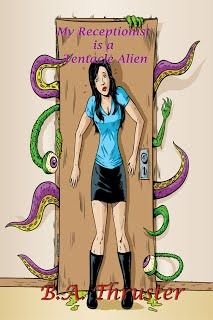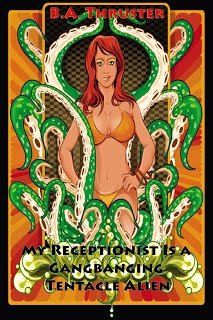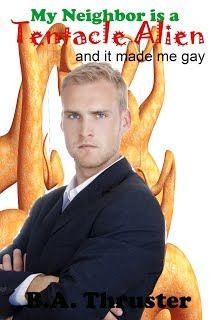Non Fiction
Date Published: July 23, 2015
Part inspirational rallying call, part first-person, autobiographical narrative, part eulogy for a treasured friend and mentor, “Life’s Too Short for Leftovers” takes the reader on a highly personal journey of self-discovery. Best-selling author Michael Ditchfield’s “9 Lessons from a Third World Kitchen” – cleverly presented as courses on a menu – conveys a singular perspective on what it means to be human, and what is required of us as individuals to be active, engaged participants in humanity.
With delightfully dry wit and profound understanding, Ditchfield introduces us to Chef Noel Cunningham – his guide and teacher – along with a kitchen-full of congenial and extraordinarily noble real-life protagonists that have served as both lightning rods and light posts in the author’s relentless (albeit sometimes reluctant) pathway toward personal transformation.
Ditchfield is a master storyteller, and his conversational style skillfully relates timeless philosophies to contemporary challenges and opportunities that face Third World countries today. Based on his extensive experience in Africa, Ditchfield brings a generous portion of lucid insights and aha moments to the table, leading the charge toward improved, positive outcomes – in our own lives, and in the lives of others. “Life’s Too Short for Leftovers” is a stimulating and memorable must-read for students of Life.
EXCERPT
Bon Appétit
“Example is not the main thing in influencing others. It is the only thing.”
~Albert Schweitzer
I have surrounded myself with Chef ’s nurturing wisdom every day since his ghostlike face appeared before my sheepish eyes on that memorable evening in 1992. I am forever grateful to Noel for keeping me close, transforming the course of my life. He welcomed me into his kitchen as a friend and “closet chef” to learn the finer touches of his culinary expertise … and to understand his deeper mission. I learned how to scramble eggs without using any utensil except the pan, and I endeavored to give of myself to help him offer the children of Africa a better tomorrow. He was my mentor and friend on a much deeper level than anyone else in my life. As a mentor, he schooled me for hours on end; and as a friend, he scolded and embraced me with equal vigor.
For many years, I was a student in Noel’s kitchen of wisdom, where the apron of his profession had become the very fabric of his life. The kitchen that we both shared was not limited to this country, but boiled over into the Third World, where every child has a right to live, to have enough to eat, and to be respected as a human being.
I will never graduate, because there is no graduation ceremony; I will never receive a diploma, because there is no diploma. But what I achieved in Noel’s kitchen is a degree of hope that I can make a meaningful difference in the lives of others—after changing my own life first. I took a sharp knife and burst the bubble that had become the gilded cage I’d lived in since my arrival from the shores of Jolly Olde England. Since then, I’ve made a point of surrounding myself with people wiser than me.
This book intends to illustrate how changing our lives enriches our lives. Think of the times when we sit for a long period of time and one leg starts to fall asleep; we adjust our bodies to feel more comfortable. In the big picture, life is no different. We usually only change when we are uncomfortable. But it doesn’t have to be that way.
Some cooks only replace a menu item when it’s run its course. But the great chefs are always changing their menus. Whether because they are tuned in to seasonal influences or because they know they so much more to offer, they are not afraid to add or remove something. They believe in themselves enough to make those kinds of decisions.
Changing when we’re comfortable means taking responsibility early enough to avoid discomfort. We can change even when things are going well. We can’t change yesterday’s menu; we can only change today’s.
“Only a fool trips on what is behind him.”
~Proverb
Of course, there are some things that stand the test of time, like Chef Noel’s Penne Bagutta with Chicken, Mushrooms and Broccoli, or Life with Integrity, Accountability, Love, and Decency. Both are abidingly satisfying.
The nine lessons set forth herein pertain to the emotions and interactions that we all face in our daily lives. The lessons evolved as a result of me sitting down around the fire with people of the Third World, listening to their voices that collectively resound with wisdom and love. Like most of us, they want better lives for their families, and are prepared to do what it takes to get there. It’s just a little more difficult when they are dealing with the particular challenges that
life has put on their table.
These lessons slice across the cutting board of life—from the relationships we have to ourselves to the relationships we have with others.
By taking a hard look at your motives and the motives of others in Read the Recipe to observing the temperature at which you’re functioning as you Preheat the Oven, you will begin to understand. In learning patience, forgiveness, and tolerance as you Simmer, Don’t
Stir, and in overcoming procrastination as you Clean Your Plate, you will begin to understand. In simplifying your life as you Just Add Water, you will continue to understand. You will begin to exceed your seeming limitations as you Bring to a Boil, and offer life’s riches to others as you Pass the Butter. You will discover that you can make a difference in your world by getting to
know your own kitchen … and then inviting others in, who are part of the world we share.
These nine lessons are ones that matter. They will have a quiet way of sneaking into everyday life. We will never go hungry if we accept personal responsibility, and neither will the people around us. We may not see now that change is on the menu, but we will find ourselves ordering it. We’ll never know how far the ripples will travel or how many lives we might touch unless we drop the first potato into the water. Whether it’s the taste of our own enriched lives or that of others, it’s a dish that we’ll order time and time again. We should spice our own lives the way we intend them to taste—we have all the right ingredients, and we are about to learn how to use them. With these lessons, we can choose a life the way we would choose a meal: wisely
About the Author

Humanitarian Michael Ditchfield—bestselling author, sought-after speaker, entrepreneur, and former professional athlete, is committed to addressing the humanitarian plight of developing countries. Ditchfield speaks widely on how to inspire change and promote empowerment among cultures and individuals.
He has worked extensively with children in Africa using sports and culture in furthering the peace process. He remains dedicated to transforming lives by advocating for human dignity across the globe.



















